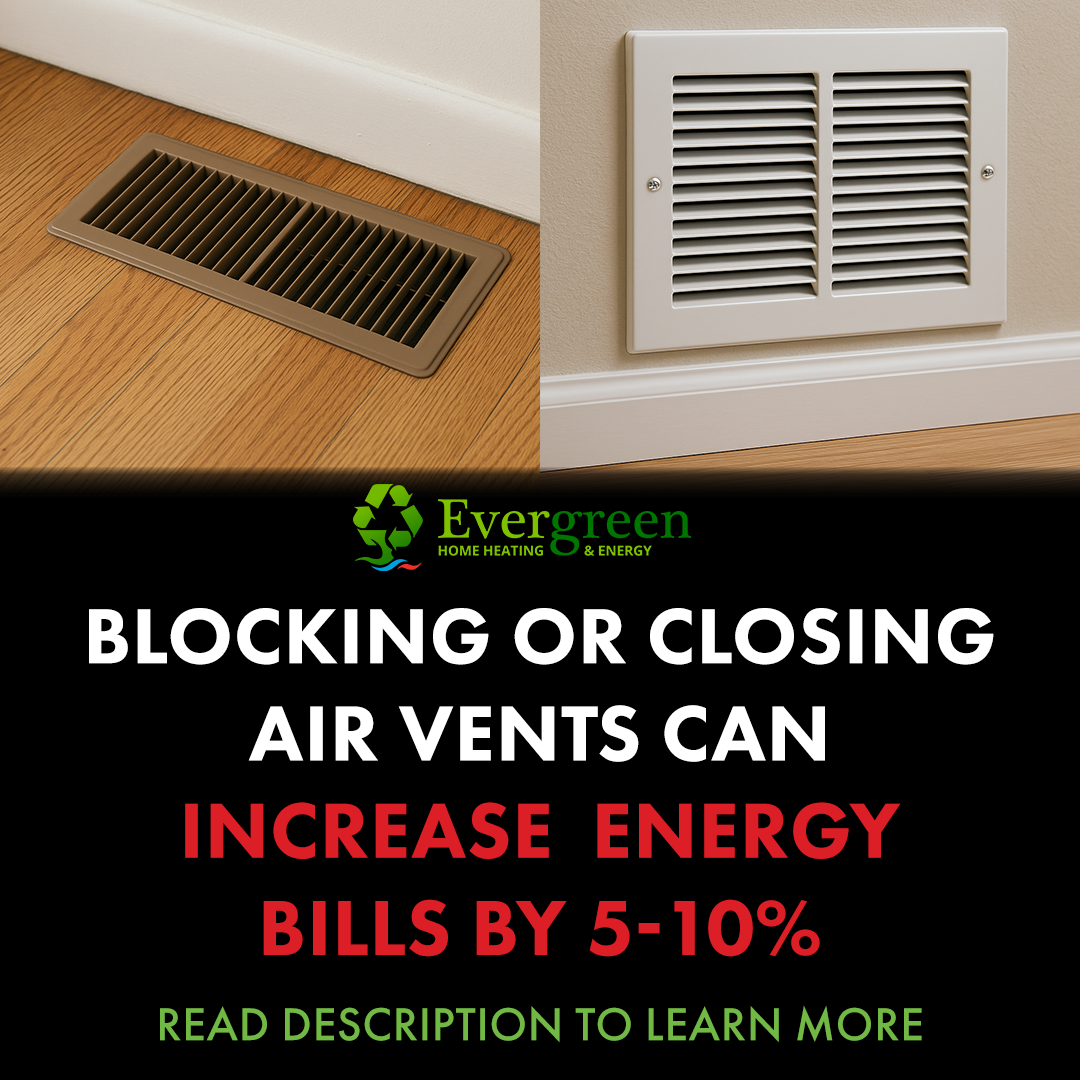Service Areas & Cities
Here Are The Areas We Serve In The King County Region
10 Warning Signs that Your Home's Heating or Cooling System Could Fail

Today’s modern central heating and cooling systems for homes, if designed well, can be extremely intelligent. Most modern thermostats can be programmed to heat or cool your home by any schedule you want. Some even support geofencing, allowing the system to know when you’re about to get home by the gps location of your phone and turn on your heating or cooling, making your home comfortable before you even walk in the front door. All of these features allow you to “set it and forget it,” only touching your thermostat a couple of times a year if you wish.
There can be a down side to all of this convenience, however. At my home I have a central heat pump system that is still under warranty. Earlier this year, during the later part of the winter, I happened to look at my thermostat as I walked by it and noticed a “fault code” on my indoor unit. The system seemed to be performing as it was supposed to. I never lost heating, and the fan seemed to be running as it should. A week or two later, the fault code hadn’t gone away, and I had one of our technicians look at my system.
It turned out that there was something wrong with my indoor unit’s control board, which wouldn’t allow my heat pump’s backup heat to turn on. I hadn’t noticed this problem because we were in a mild weather pattern and my backup heat wasn’t needed to keep my home comfortable at the time. However, had I ignored this issue, my system wouldn’t have been able to keep up during the coldest part of the winter, leaving my family in the cold. I also would’ve needed service during the highest demand time of the year, potentially having to live with the problem for a while as I waited for a technician to become available.
On top of this, because my control board was not functioning properly, it had the potential to cause further issues with the rest of the system. Luckily, I was able to get a technician into my home within a short amount of time to replace the control board, which was still under warranty.
The bottom line: don’t ignore your heating and cooling system’s warning signs. If you’re able to get a technician to your home to fix a potential problem early, you could avoid needless hassles and larger costs in the future. Here is a list of 10 warning signs your system may give you. Don’t ignore them!
- Fault codes or warnings on your thermostat
See above story. You may not be seeing other problems or symptoms, but something isn’t working properly if you’re getting a fault or error code.
- Unfamiliar mechanical noises
If you’ve had your heating or cooling system for a while, you generally know what it usually sounds like. If you start hearing unfamiliar noises that sound like something is wearing down or breaking, it’s time to have a technician look at your system before it breaks.
- Water/liquid in places it shouldn’t be
If you’re seeing standing water anywhere you don’t think it should be, it’s time to call a technician. Some heating equipment, and all cooling equipment, creates condensation during operation. This is typically normal. However, especially on indoor equipment, the system is designed to properly drain or dispose of the water. If you’re seeing standing water, you could have a leak, which could be causing unseen damage to your equipment or your home.
- Air duct noise that’s louder than normal
Similar to number 1, if you’re hearing a lot more noise coming from your ductwork than you’re used to hearing, you should take a closer look at your system. It could be that your filter needs to be changed, which is causing a lot more static pressure in your air system and creating noise. In this case, just change or clean the filter, depending on its specifications. If the weather is unusually cold or hot at the time, your system may just be running at a higher speed to compensate (if you have a blower capable of multiple speeds). In this case, it would be normal behavior. However, if neither of the above apply, higher air duct noise could signal something larger is wrong with the system. Time for a technician!
- Dirty or clogged filters
A dirty, clogged filter can put a lot of undue stress on the system. This is an easy one. Most likely no technician needed! Make sure you change your filter often, according to the manufacturer’s specifications, to ensure your system runs as efficiently as possible, and to extend the life of your system and components.
- Many stops and starts within a short amount of time (short cycling)
This could signal a variety of issues. First step, make sure your filter isn't clogged. However, if the filter is ok and this is still happening, you should have a technician look at your system as soon as possible.
- Changes in your utility bills
Some problems can cause the system to run inefficiently, while allowing it to continue to provide comfort to your home. An example would be a failed compressor on a heat pump. When this happens, the backup heat in the indoor unit will continue to run to make sure the home is heated properly. Unfortunately, especially if you have an all-electric system, backup heat is far less efficient than the heat pump. A failed compressor would likely show up on your next utility bill as a higher than normal amount for electricity (or gas if you have a gas furnace as your back up heat source). Pay attention to your utility bills. If you’ve had a much higher bill the last couple of months and it doesn’t seem to be related to more extreme weather, you could have a problem with your system.
- Drops in heating or cooling performance
If you’re noticing that your system isn’t performing how it used to during similar weather conditions, first check your filter. If the filter is ok, it’s time to have a technician take a look.
- Lights dimming when your equipment starts up
This could also be a signal that something isn’t right with your system. You could have some components failing, putting stress on your equipment as well as the electrical system in your home. In some cases, we recommend a soft start kit, which reduces the stress on your equipment when the compressor first begins to turn, and reduces the amount of electrical draw needed for the initial start. In any case, if this is happening it’s best to have a technician come out and look at your system.
- You haven’t had maintenance performed in over a year
This one is vitally important. Just like any piece of mechanical equipment, your heating and cooling system needs to be properly maintained to reach its expected life span. If you haven’t had maintenance in a long time, your system could be in danger of early failure for a variety of reasons.
Call us today to schedule maintenance or service!




